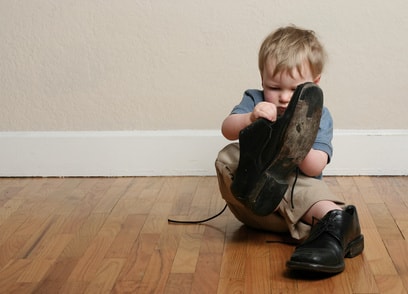5 ways Germans help their children become independent
During 6 years of raising 2 children in Germany, the American mother realized that this nation gives children freedom from a very early age, in order to create flexibility and responsibility.
When journalistsWhen Sara Zaske moved to Berlin with her family a few years ago, she noticed some differences in German parents. They didn’t hover around their children. They didn’t follow them around on the playground, or intervene when they got into fights. They let them go places alone, play with knives and matches. Struck by this cultural difference,Zaske wrote a book about the years he raised his children here.
In the book: "Achtung Baby: An American Mom on the German Art of Raising Self-Reliant Children", she describes how the freedom German parents give their children helps them become independent, responsible, and self-reliant from a very early age. She also believes that parents should relax, be less controlling, and their children will be fine, or even better.
|
Image:Vaterfreuden.de |
Peg Oliveira, developmental psychologist and executive director of the InstituteGesell School of Child Development in New Haven,Connecticut (USA) agrees that in Germany, as in many other developed economies, children are raised with more freedom, and the benefit is that they become more self-reliant.
However, she added that this is not the ultimate weapon. "It is not a one-size-fits-all formula and what works well in one place will work well in another."
Here are some simple ways to help your child become more self-reliant the German way:
1. Don't intervene in every argument
According to the Gesell Institute, by age 4, most children have the vocabulary and maturity to disagree with their peers. So the next time your 5-year-old complains that his sibling or classmate won't let him play with them, or is taking turns playing with them, instead of stepping in to mediate, ask, "Do you think you two can work it out yourselves?" (Of course, you should intervene if they fight.)
2. Let your child order for you in a restaurant
Of course, it would be quicker and easier to order your own food, but resist the temptation. Letting your child tell the waiter what they want shows that you respect them as independent people and trust them to do things for themselves, building their confidence.
3. Resist the urge to constantly monitor your child
To develop independence in children, give them physical freedom. The first step is to sit on the sidelines where they can see you next time you take them to the playground, instead of following them around.
Take it a step further and let your child go places alone (e.g. walk or bike to a nearby school). Only accompany your child the first time they arrive in a new place. Or you can accompany your child until they are comfortable going alone.
Teach your child how to cross the street safely and what to do if approached by a stranger. Of course, it is best to have your child with a friend or sibling.
4. Don't plan ahead.oach everywhere, every time
Allow your kids some downtime, doing nothing (without electronics nearby), without worrying about them getting bored. "Let them be bored," says Zaske."Boredom is important - because that's when kids get creative and discover what they want."
In Berlin, Zaske's daughter's kindergarten even removed all toys from the classroom for three months, to force children to use their imaginations. "If children are always told what to do, they will never learn to be independent."
Dr. Tine Pahl, a German-born developmental psychologist who once lived in Jersey City, agrees. She observed that many of her young adult patients were affected by over-indulgent parents as children. Many of them struggled with tasks as adults.
Pahl himself taught his son maturity by leaving him home alone for short periods from the age of eight.
5. When children show self-reliance, praise them.



